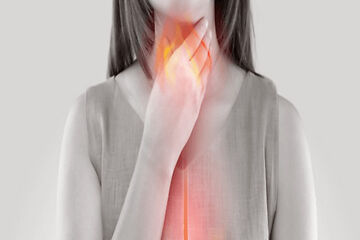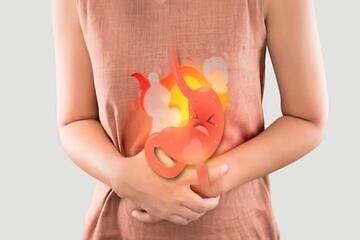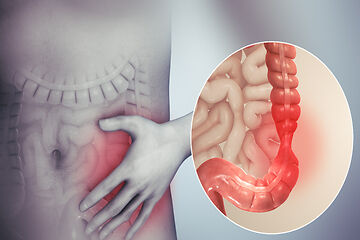What is Gastroesophageal reflux disease?

Doctors often refer to Gastroesophageal reflux disease as GERD; occurs when stomach acid frequently flows back into the tube connecting your mouth and stomach (esophagus). This backwash (acid reflux) can irritate the lining of your esophagus.
Sometimes, Gastroesophageal reflux disease is common in people who are already under hospital supervision. The condition only takes a few of the days to weeks to develop, and so it is critical to go for the right treatment approach if you want to recover possibly soon.
What are the signs and symptoms of Gastroesophageal reflux disease?
There are some signs that can help to know if you have Gastroesophageal reflux disease or not, but you may not notice them right away.
However, the possible signs that may help you out are:
- Heartburn (acid indigestion): It usually feels like a burning chest pain that starts behind your breastbone and moves upward to your neck and throat. Many people say it feels like food is coming back into the mouth, leaving an acid or bitter taste.
- Chronic cough
- Laryngitis
- New or worsening asthma
- Disrupted sleep
- Nausea: Stomach discomfort and the sensation of wanting to vomit.
Immediately contact your doctor if you notice any such signs.
What are the causes of Gastroesophageal reflux disease?
The term “gastroesophageal” refers to the stomach and esophagus. Reflux means to flow back or return. Gastroesophageal reflux is when what’s in your stomach backs up into your esophagus.
If the sphincter relaxes abnormally or weakens, stomach acid can flow back up into your esophagus. This constant backwash of acid irritates the lining of your esophagus, often causing it to become inflamed.
Diagnosis of Gastroesophageal reflux disease
If you have severe, lasting esophageal reflux, or if your symptoms don’t get better with treatment, you may need tests for a better diagnosis. Your doctor may use one or more procedures to do this:
Some tests that are normally done are as:
- Endoscopy: Your doctor will put a small lighted tube with a tiny video camera on the end (endoscope) into your esophagus to look for inflammation or irritation of the tissue (esophagitis). If the results are abnormal or questionable, they may remove a small tissue sample for more testing (biopsy).
- Upper GI series: This may be one of the first tests your doctor does. It’s a special X-ray that shows your esophagus, stomach, and the upper part of your small intestine (duodenum). It gives limited information about possible reflux, but it can help rule out other conditions, such as peptic ulcers.
- Esophageal manometry and impedance study: This test checks for low pressure in your esophagus. It can also show defects in how your esophageal muscles contract.
- pH testing: If it’s hard to make a definite diagnosis, your doctor may measure the acid levels inside your esophagus through this test. It tracks how much acid is in your esophagus during meals, activity, and sleep. Newer techniques of long-term pH tracking have made this a more effective tool.
What are the complications of Gastroesophageal Reflux Disease?
A few of the comorbidities you may face with Gastroesophageal Reflux Disease are:
- Esophageal ulcer: Stomach acid eats away at your esophagus until an open sore forms. These sores are often painful and may bleed. They can make it hard to swallow.
- Esophageal stricture: Stomach acid damages the lower part of your esophagus and causes scar tissue to form. This scar tissue builds up until it narrows the inside of the esophagus and makes it hard to swallow food.
- Barrett’s esophagus: Acid reflux changes the cells in the tissue that lines your esophagus. The lining gets thicker and turns red. This condition is linked to a higher chance of esophageal cancer.
- Lung problems: If reflux reaches the back of your throat, it can cause irritation and pain. From there, it can get into the lungs (aspiration). If this happens, your voice may get hoarse. You could also have postnasal drip, chest congestion, and a lingering cough. If your lungs get inflamed, you can develop asthma, bronchitis, and possibly even pneumonia.
Prevention of Gastroesophageal reflux disease
Preventing and treating illnesses that can become the risk factor for GERD is the best way to curb out it's complications. Make sure to change a few of your lifestyle habits and do regular physical exercise (not intense one). Talk to your doctor and take the help of a dietician who can suggest a decent diet to avert GERD. A diet is a healthy component of Gastroesophageal reflux disease treatment in Ayurveda!






